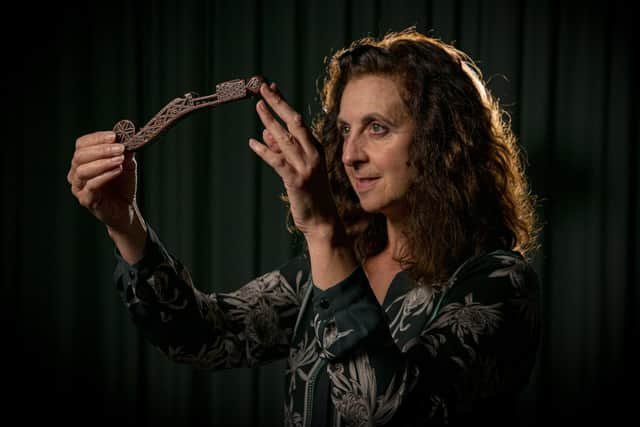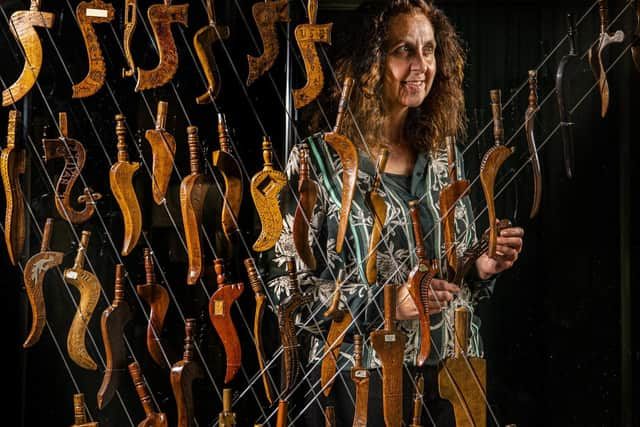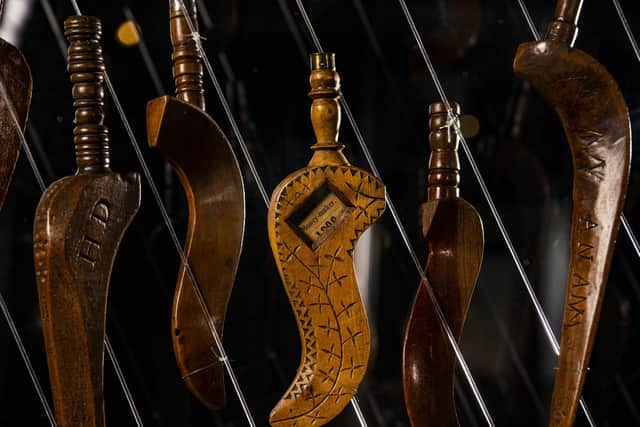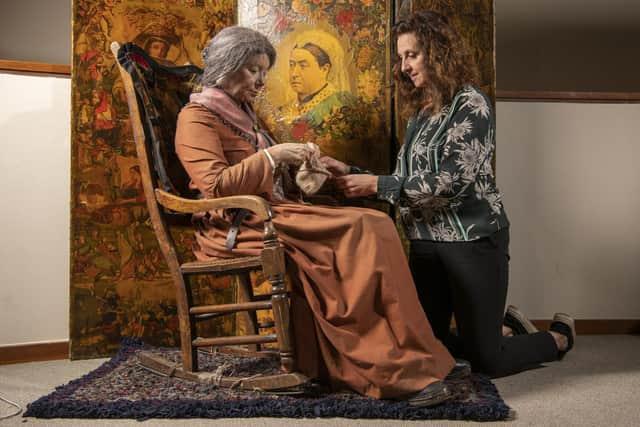Extraordinary collection of 18th century love tokens to be shown for the first time in Yorkshire Dales knitting sticks exhibition
Now one man’s rare trove, collected over the course of two decades and with 400 hand-crafted examples, is to feature in an unique exhibition at the Dales Countryside Museum.
It has taken several years to bring this curation to public viewing and, as it is laid out in fullness for the first time, the rich social history it details is revealed.
Advertisement
Hide AdAdvertisement
Hide AdEvery one is unique, with fine carvings that tell of a harder way of life, and of the character of the people that used them.


Museum manager Fiona Rosher said: “Each one tells its own story. They were something used by poorer people to supplement an income, and they show how hard life could be.
“You can see the love and attention that has gone into them. They are a reflection of the people that used them.
“It’s just a stunning collection. They were, in a way, everyday objects, even though they were treasures. They have never been seen in public before.”


____________________________________
Advertisement
Hide AdAdvertisement
Hide AdKnitting sticks, which could be tucked under an arm or held fast in a belt, allowing someone to knit with three or four needles, meaning faster work and therefore more money.
Hard up communities would often supplement their income through knitting, and in some parts of the country, particularly Wales, they were also given as love tokens or to mark a betrothal.
In the Dales they are said to be plainer, hand carved from wood and worn with wear. Once used across Britain wherever wool was produced, they have long since fallen out of use, but one man, fascinated by the singularity of each, has brought together more than 400 over 20 years.


John Dixon’s collection features tiny sticks for children and great bulky chunks of wood for hardened miners, as well as those with finely carved designs and intricate lettering.
Advertisement
Hide AdAdvertisement
Hide AdTo the 78-year-old retired carpet fitter from Shelley near Huddersfield, they tell the tale of a people that were poor, and whose efforts deserve recognition.
A hard living
“The people who used these sticks were old when they were in their 30s,” said Mr Dixon. “They were poor. The money that they earned was a pittance but it was better than nothing.


“Men used to knit when they walked to the lead mines. If they were walking three or four miles, they knitted.
“And they got to the mines and there’d be a shed where they’d put their knitting sticks and wool and go down the mines and come back and knit all the way back home.
Advertisement
Hide AdAdvertisement
Hide Ad“Every knitting stick has been a challenge to collect and save, polish, look at now and again, polish again and store,” he added.
“It’s given me a chance to know the relationship between the valleys up here - the social history of how Middleton in Teesdale is different from Dentdale.”
Exhibition
The exhibition at the museum, which is run by the Yorkshire Dales National Park Authority, runs until March 27.
Most are from the 1800s when Britain was fighting the French, when crude socks from the Dales were in high demand, loaded onto carts in Kendal and shipped to foreign shores.
Advertisement
Hide AdAdvertisement
Hide AdThere are differing styles, with some shaped as fish, pegs, spindles and even a whale, while others have tiny glazed windows, containing secret messages or hearts.
_______________________________________________________________________________
Support The Yorkshire Post and become a subscriber today. Your subscription will help us to continue to bring quality news to the people of Yorkshire. In return, you'll see fewer ads on site, get free access to our app and receive exclusive members-only offers. Click here to subscribe.
